- AI
- 18 min read
- January 2024
Top Generative AI Development Companies of 2025
Key Takeaways
By 2026, more than 80% of enterprises will have used generative artificial intelligence (GenAI) application programming interfaces (APIs) or models and/or deployed GenAI-enabled applications in production environments, up from less than 5% in 2023.
As we progress through 2025, generative artificial intelligence (AI) continues to stand at the forefront of enterprise innovation, reshaping industries with extraordinary force. Once a speculative technology, it’s now central to digital strategy, product design, marketing, and intelligent automation.
These vanguards, armed with profound expertise in machine learning, natural language processing, and state-of-the-art AI models, are not merely participants in this era of innovation but are their architects.
These trailblazing entities harness the power of large language models (LLMs)and deep learning techniques, fundamental tools that revolutionize the generative AI space.
Their contributions are marked by AI innovations and significant advancements such as:
- Development of pioneering diffusion models: Enhancing the capabilities of generative AI tools with innovative diffusion models.
- Diverse AI technologies spectrum: Employing a broad array of AI technologies to demonstrate versatility in AI solutions.
- Fostering business innovation: Enabling businesses to unlock new avenues of innovation through the application of AI.
- Advanced complex data analysis: Facilitating deeper insights from intricate data sets crucial for informed business decisions.
- Revolutionizing decision-making processes: Transforming businesses with AI-driven insights and analytics.
However, the influence of these generative AI companies extends well beyond technical achievements.
They are at the forefront of integrating human creativity with AI's power, ushering in an era of novel applications – from creative content generation to automating complex business operations.
These generative AI development companies are reshaping industries, setting new benchmarks for how generative AI can catalyze business growth and create competitive advantages.
As they continue to push the boundaries of what's possible with generative AI, their role becomes increasingly vital.
These gen AI development companies are the linchpins in the AI revolution, indispensable for businesses looking to leverage the most talked-about technological trend of our times.
In 2025, adopting generative AI strategies is not just an option but a strategic necessity for staying ahead in the fast-paced digital landscape.
Understanding generative artificial intelligence: The core of modern innovation
In the fast-moving landscape of 2025, generative AI remains a pillar of digital transformation across sectors. It now powers everything from automated product design and synthetic content to real-time decision intelligence and customer service.
At the core of this transformation are:
- Large language models (LLMs) like GPT-4.5, Claude 3, and Gemini 1.5 Pro, capable of generating human-like responses and reasoning through complex prompts.
- Foundation models that span domains—from vision and speech to code and robotics—trained on massive, multimodal datasets.
- Diffusion models, which continue to evolve, now creating ultra-realistic images and video using minimal input.
Together, these tools aren’t just pushing the envelope in content generation—they’re unlocking new levels of enterprise intelligence, personalization, and operational efficiency.
Criteria for selection: How we identified the leaders
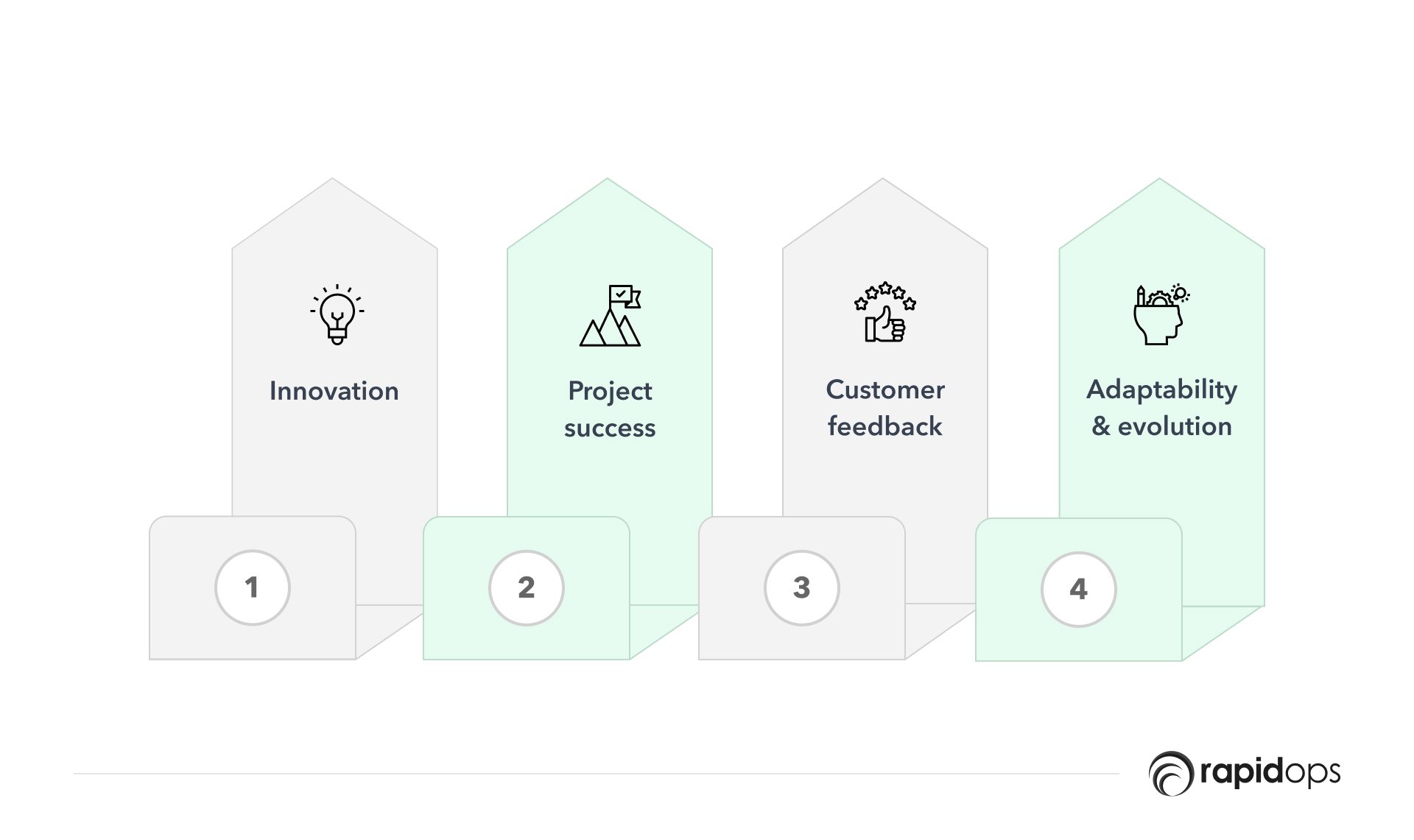
In our evaluation of the top generative AI development companies of 2025, we adhered to a criteria set that highlights innovation, practical success, client satisfaction, and adaptability. Each factor was carefully considered to ensure a balanced and thorough assessment:
1. Innovation
- Use of LLMs, diffusion models, and foundation models for real-world solutions.
- Application of AI across new verticals and edge cases.
2. Project success
- Verified impact across sectors, with measurable business outcomes.
3. Customer feedback
- Testimonials showcasing ROI, creativity, speed, and experience enhancements.
4. Adaptability and evolution
- Staying ahead of trends: from on-device GenAI to responsible AI frameworks and open-source contributions.
This approach ensures we not only celebrate past achievements but also spotlight those shaping the future.
The generative AI development companies of 2025
Certain gen AI development companies stand out in the dynamic landscape of generative AI for their innovative contributions and groundbreaking achievements.
Here, we profile some leading generative AI development companies, highlighting their specialties, notable projects, and unique selling points.
1. Rapidops

Location: Charlotte, North Carolina, USA
Founded: 2008
Specialization: Custom generative AI solutions, enterprise-grade LLM applications, AI-driven digital product development
As one of the most agile and technically robust players in the generative AI space, Rapidops has distinguished itself by combining product innovation, AI strategy, and deep engineering capabilities to deliver intelligent solutions that scale. Over the years, the company has evolved from a digital transformation consultancy into a trusted AI implementation partner for Fortune 500s, mid-sized enterprises, and funded startups alike.
In 2025, Rapidops is helping organizations move beyond experimentation into real GenAI product delivery—whether it’s internal optimization tools, customer-facing assistants, or creative automation engines.
As one of the most agile and technically robust players in the generative AI space, Rapidops has distinguished itself by combining product innovation, AI strategy, and deep engineering capabilities to deliver intelligent solutions that scale. Over the years, the company has evolved from a digital transformation consultancy into a trusted AI implementation partner for Fortune 500s, mid-sized enterprises, and funded startups alike.
In 2025, Rapidops is helping organizations move beyond experimentation into real GenAI product delivery—whether it’s internal optimization tools, customer-facing assistants, or creative automation engines.
Core capabilities and services
1. Enterprise-grade generative AI platforms
Rapidops specializes in building LLM-powered platforms and co-pilots customized to business workflows—ranging from CRM automation and customer support agents to auto-generated insights and internal knowledge engines.
2. Multimodal AI integrations
The company is adept at combining text, vision, and speech models (e.g., GPT-4.5, Claude 3, Gemini 1.5, DALL·E, and Stability AI’s SDXL) into unified, cross-functional experiences. Applications range from image generation in e-commerce to document intelligence in finance and logistics.
3. Data privacy and fine-tuning expertise
Recognizing the rise in AI governance and compliance standards, Rapidops enables enterprises to deploy private GenAI environments using open-source models like LLaMA 3 and Mistral. The team also offers domain-specific model fine-tuning for sensitive industries, such as finance, healthcare, and retail.
4. End-to-end AI product development
Rapidops follows a full-lifecycle approach to GenAI product delivery—from discovery and prototyping to model selection, prompt engineering, UX/UI design, deployment, and scale. Its ability to blend technical depth with business understanding sets it apart from generic development vendors.
What makes Rapidops stand out in 2025
- Proven experience working with LLMs across OpenAI, Anthropic, Google, and open-source ecosystems
- Strong emphasis on user-centered design and business integration, not just model performance
- Actively contributes to clients’ IP ownership and AI maturity, helping companies internalize and scale GenAI independently over time
- Recognized by clients for reducing time-to-deploy for GenAI applications from months to weeks
As generative AI matures in 2025 from novelty to necessity, Rapidops has positioned itself as a strategy-first, execution-strong partner—building intelligent systems that not only solve problems but deliver measurable business value.
2. Runway ML

Location: New York, USA
Founded: 2018
Specialization: Generative AI for video, creative tools for content production, multimodal model innovation
Runway ML has established itself as one of the most dynamic companies at the intersection of AI and creativity. What began as a creative toolkit for artists and designers has now evolved into a full-fledged AI-native video and media production platform, enabling users to generate, edit, and manipulate high-quality visuals directly in the browser.
By 2025, Runway has moved beyond traditional generative image applications and become a pioneer in text-to-video AI, helping redefine how creators, media houses, and enterprises produce digital content at scale.
Core capabilities and services
1. Gen-2 and Gen-3 video models
Runway’s proprietary diffusion-based models enable users to generate video clips from text prompts, static images, or video sequences. These tools allow for seamless frame interpolation, style transfer, and content transformation—without needing any code or advanced editing knowledge.
2. Browser-based creative suite
Runway offers an end-to-end video editing environment powered by generative AI. It includes background removal, inpainting, motion tracking, and rotoscoping tools—all enhanced by real-time AI assistance.
3. Collaborative media workflows
Designed for creators, marketers, and teams, Runway supports collaborative project editing, version control, and integrations with popular production software, enabling rapid prototyping and post-production.
4. Text-to-video generation and editing
With the release of Gen-3, users can create full narrative videos from simple descriptions. This includes dynamic camera movements, object-aware rendering, and context-preserving animations.
What makes Runway ML stand out in 2025
- Among the first platforms to bring real-time, high-resolution text-to-video generation to the web
- Empowers content creators—from YouTubers and indie filmmakers to enterprise marketing teams—to generate polished visual content without traditional production costs
- Frequently used for storyboarding, ad content production, explainer videos, and social media campaigns
- Focused on accessibility, enabling creatives without machine learning backgrounds to work with cutting-edge AI tools
Runway’s mission in 2025 remains consistent: to democratize creative expression through generative technology. By eliminating technical barriers and shortening production cycles, the company empowers anyone to bring their ideas to life—transforming content creation into a more agile, scalable, and visually expressive process.
3. Algolia

Location: San Francisco, USA (HQ) | Global Presence
Founded: 2012
Specialization: AI-powered search, vector and semantic search, real-time content discovery
Algolia has evolved from a search-as-a-service platform into a core engine for AI-driven digital experiences. In 2025, it plays a vital role in powering real-time search and discovery across e-commerce, media, SaaS, and content-rich digital platforms. What sets Algolia apart is its unique ability to blend traditional keyword search with modern vector-based and generative search capabilities, delivering hyper-relevant, lightning-fast results at scale.
Its platform is trusted by over 17,000 businesses globally and touches more than 1 in 6 internet users each month—underscoring its impact on how people access, explore, and engage with digital content.
Core capabilities and services
1. NeuralSearch platform
Algolia’s flagship offering, NeuralSearch, combines vector search, keyword search, and semantic ranking into a unified system. This enables websites and apps to return more accurate, intent-aware results that reflect user language, behavior, and context.
2. AI relevance and ranking engine
Algolia uses large language models and behavioral signals to enhance result ranking and relevance. Features include personalization, click-through optimization, synonym detection, typo tolerance, and real-time feedback learning.
3. Developer-first architecture
Built with API-first principles, Algolia is favored by developers for its ease of integration, customization options, and flexible SDKs across web, mobile, and server environments.
4. Generative AI search augmentation
In 2025, Algolia has introduced capabilities where generative models provide contextual answers, summaries, or even AI-generated content snippets within search results—turning static search pages into intelligent, conversational interfaces.
What makes Algolia stand out in 2025:
- A hybrid search model that combines vector embeddings (semantic) with symbolic (keyword) search, ensuring both speed and accuracy.
- A leading player in AI-native commerce and media discovery, driving product findability, content recommendations, and dynamic experiences.
- Scalable infrastructure capable of handling billions of queries per month across industries like retail, streaming, B2B SaaS, and education.
- Supports headless commerce and composable architecture, making it a preferred backend for modern digital experience platforms.
As digital businesses continue to shift from simple search bars to conversational, predictive, and generative experiences, Algolia provides the backbone for this transformation—bridging intent, relevance, and real-time responsiveness.
4. Dessa (A Block Company)

Location: Toronto, Canada
Founded: 2016 (Acquired by Block/Square in 2020)
Specialization: Applied AI research, financial LLMs, deepfake detection, secure media authenticity tools
Dessa began as one of Canada’s most prominent AI startups, known for its pioneering work in deep learning and synthetic media. After being acquired by Block (formerly Square), Dessa became part of the fintech giant’s internal innovation engine. Today, its Toronto-based team operates as a high-impact AI research and deployment hub focused on critical challenges at the intersection of finance, trust, and media authenticity.
While the brand operates quietly under Block, its work continues to influence multiple sectors behind the scenes—especially in risk-sensitive environments where AI accuracy, ethical safeguards, and data integrity are non-negotiable.
Core capabilities and services
1. Financial-grade large language models (LLMs)
Dessa develops domain-specific LLMs tailored to the needs of global payments, transaction analytics, and fraud detection. These models are optimized to detect anomalies, flag suspicious behaviors, and automate resolution in real-time.
2. Deepfake detection and media validation
With synthetic media proliferation posing major risks in journalism, politics, and finance, Dessa’s research has led to highly accurate models capable of detecting deepfakes and verifying media authenticity across formats.
3. Conversational AI for fintech ecosystems
Dessa has built multilingual, secure conversational agents embedded into Block’s consumer and merchant-facing apps. These systems improve user interaction while ensuring compliance with financial data regulations.
4. Secure AI deployment
As part of a publicly traded company, Dessa’s work adheres to strict standards in explainability, auditability, and AI model governance—making it one of the more mature GenAI development environments globally.
What makes Dessa stand out in 2025:
- One of the few GenAI teams operating with full integration into fintech-grade infrastructure, enabling rapid AI deployment without compromising regulatory rigor.
- Among the pioneers of deepfake and media forensics tools now adopted by newsrooms, social platforms, and government watchdogs.
- Leverages cutting-edge research in multilingual LLMs, especially in the context of global financial access and inclusive language models.
- Maintains academic partnerships with AI research institutions in Canada and the US, contributing regularly to applied AI journals and papers.
In a year where trust in AI outputs is more critical than ever, Dessa’s commitment to reliable, verifiable, and ethical AI models positions it as a key player—especially for businesses operating in regulated, high-stakes environments.
5. Observe.AI
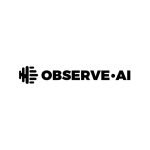
Location: San Francisco, USA
Founded: 2017
Specialization: Contact center intelligence, large language models for voice data, AI-enabled customer experience
Observe.AI is one of the foremost pioneers in applying generative AI to contact centers and customer experience operations. With a dedicated focus on voice data and real-time interaction analysis, the company has redefined how organizations optimize customer support, sales conversations, and compliance practices using purpose-built large language models.
In 2025, Observe.AI is helping businesses move beyond simple call recordings and quality assurance by providing rich, actionable insights from every customer interaction, across both voice and text channels. The platform is used by major enterprises in banking, insurance, telecom, and healthcare sectors to gain visibility into customer needs, agent performance, and operational efficiency.
Core capabilities and services
1. Contact center large language model (CC-LLM)
Observe.AI’s proprietary LLM is trained specifically on millions of real-world customer support interactions. It understands contact center-specific terminology, sentiment, and workflows, enabling unparalleled precision in analyzing intent, emotion, and outcomes.
2. Real-time agent assistance
During live calls, the AI can provide contextual prompts, suggestions, objection-handling tips, and compliance reminders—empowering agents to deliver better outcomes with more confidence.
3. Automated conversation intelligence
Every call, email, and chat is transcribed, summarized, and analyzed automatically. This allows managers to track performance, identify coaching opportunities, and optimize conversation outcomes—without needing to manually review calls.
4. Compliance monitoring and audit readiness
Observe.AI automatically flags high-risk phrases, monitors script adherence, and generates audit trails to support regulatory compliance in sectors like finance and healthcare.
5. Sales and performance coaching
Through analytics dashboards and intelligent alerts, the platform helps teams boost conversion rates, customer satisfaction, and first-call resolution metrics.
What makes Observe.AI stand out in 2025
- One of the only GenAI companies offering domain-trained LLMs purpose-built for voice-based CX and contact center use case.
- A proven partner for enterprises looking to modernize legacy customer service tools without disrupting existing systems or workflows.
- Operates at scale, with many clients processing millions of calls per month through the platform.
- Backed by significant funding and recognized for driving measurable improvements in compliance adherence, customer sentiment, and revenue impact.
As contact centers become more strategic to customer loyalty and brand value, Observe.AI is leading the transition from reactive support to proactive, AI-powered interaction management—where every conversation becomes a business growth opportunity.
6. Neurable
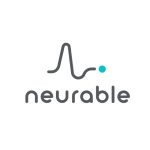
Location: Boston, USA
Founded: 2015
Specialization: Brain-computer interfaces (BCI), adaptive generative AI, neurotechnology for real-time personalization
Neurable is a frontier technology company fusing neuroscience and artificial intelligence to create truly adaptive digital experiences. Initially known for developing consumer-friendly brain-computer interface (BCI) wearables, Neurable has grown into a pioneer of neuroadaptive generative AI—where human brain signals influence real-time content generation, personalization, and system behavior.
In 2025, the company is shaping a new category of interaction where the user’s cognitive and emotional state becomes part of the AI input. This opens up transformative possibilities across gaming, productivity, mental wellness, and immersive learning.
Core capabilities and products
1. Neuroadaptive content generation
Neurable’s technology interprets brain signals—measuring focus, engagement, stress, and cognitive load—and feeds this data into generative models. As a result, content dynamically adjusts in real time to match the user’s emotional and mental state.
2. Brain-sensing wearables
Its flagship product, the MW75 Neuro headphones (developed in partnership with Master & Dynamic), monitors EEG data through discreet sensors embedded in the headphone design. Paired with AI models, it enables applications like adaptive soundscapes, meditation assistants, and productivity coaching.
3. Gaming and extended reality (XR)
In interactive environments, Neurable’s AI interprets brain feedback to adjust difficulty levels, pacing, or narrative flow—giving rise to deeply personalized and immersive experiences in gaming and virtual learning.
4. Healthcare and mental wellness applications
Through partnerships with researchers and digital health companies, Neurable’s platform supports applications in anxiety management, ADHD monitoring, cognitive training, and burnout prevention. The AI continuously adapts based on biometrics, improving therapeutic effectiveness.
What makes Neurable stand out in 2025
- One of the few companies combining BCI hardware with adaptive GenAI software, creating a seamless brain-to-content interface.
- A leader in affective computing, allowing digital systems to respond not just to what users say—but how they think and feel.
- Provides an open platform for developers to build neuroadaptive applications in wellness, entertainment, and education.
- Works across regulated industries with a strong emphasis on privacy, consent, and ethical neurodata usage
As demand grows for more intuitive and personalized human-AI experiences, Neurable represents a breakthrough in emotional intelligence and adaptive design, giving users a level of personalization that feels both invisible and transformative.
7. Fable Studio

Location: San Francisco, USA
Founded: 2018 (by former Oculus Story Studio creatives)
Specialization: AI-driven storytelling, virtual beings, emotionally intelligent character interaction
Fable Studio is redefining storytelling in the age of generative AI through its development of “Virtual Beings”—AI-powered characters that engage in rich, emotionally intelligent conversations with users. These aren’t static chatbots or scripted avatars; they are dynamic, evolving digital personas capable of memory, context awareness, and emotionally resonant interaction.
With a strong foundation in immersive storytelling and cinematic design, Fable is at the forefront of blending generative narrative design with advanced LLMs and real-time animation tools, creating entirely new mediums of expression for entertainment, education, and the metaverse.
Core capabilities and offerings
1. Virtual beings with memory and personality
Powered by large language models such as GPT-4.5 and fine-tuned proprietary agents, Fable’s characters are designed to recall past conversations, understand emotional cues, and evolve based on user interaction. This transforms storytelling into a two-way, continuously unfolding experience.
2. Interactive AI narratives
Through episodic formats or open-ended interactions, users engage with characters in real-time as stories progress. These narratives adjust to individual user choices, tone, and behavior—fostering long-term engagement and emotional investment.
3. Production-grade character systems
Fable offers an end-to-end platform for designing, animating, and deploying AI-native characters with voice, facial expressions, body language, and custom personalities. These characters are now being integrated into streaming content, AR/VR environments, and gamified learning platforms.
4. AI actors and the synthetic media frontier
In 2025, Fable is working with streaming platforms and virtual world developers to incorporate AI actors into animated and mixed-reality projects. These characters can improvise, reframe dialogue based on feedback, and contribute to faster, lower-cost content production without sacrificing creative integrity.
What makes Fable Studio stand out in 2025
- A trailblazer in the emerging genre of emotional AI storytelling, with a creative-first approach to generative AI.
- Among the earliest to humanize LLM-powered characters with long-term memory, narrative coherence, and emotional adaptability.
- Frequently cited as a pioneer in the synthetic media movement, shaping ethical discussions around digital identity, likeness rights, and virtual celebrity.
- Offers a scalable platform for brands, media companies, and educators to develop branded AI characters that can serve as hosts, guides, or narrators
In a world where audiences demand immersion, authenticity, and agency, Fable Studio is creating entirely new formats for digital storytelling, making AI a co-author, co-star, and co-creator in the stories of the future.
8. Neoteric

Location: Gdańsk, Poland
Founded: 2005
Specialization: Custom software development, GenAI integration for businesses, product innovation
Neoteric is a seasoned technology partner known for combining deep software engineering expertise with practical, business-aligned AI solutions. With a portfolio spanning over 200 global projects across five continents, the company specializes in building custom digital products and integrating generative AI capabilities to help organizations solve complex challenges, accelerate innovation, and modernize their operations.
In 2025, Neoteric continues to be a go-to partner for companies looking to move fast with GenAI—not just at the proof-of-concept level, but in building scalable, user-ready, and maintainable applications that deliver tangible value.
Core capabilities and services
1. AI co-pilots for enterprise tools
Neoteric builds embedded AI assistants that augment internal business tools such as CRMs, ERPs, analytics dashboards, and HR platforms. These co-pilots assist with summarizing reports, surfacing insights, automating decisions, and improving productivity across departments.
2. Domain-specific GenAI accelerators
The company has prebuilt frameworks for industries such as SaaS, retail, logistics, and manufacturing. These include document understanding, conversational AI, predictive analytics, and product recommendation engines—all built on a modular, customizable base.
3. Full-cycle product development
Beyond AI capabilities, Neoteric offers complete software development services, including backend/frontend engineering, UI/UX design, cloud architecture (AWS/GCP), CI/CD implementation, and post-deployment support. This enables clients to bring AI-powered products to market faster and more reliably.
4. Custom LLM integration
Neoteric helps clients assess whether to use commercial APIs (OpenAI, Cohere, Anthropic) or open-source models (Mistral, LLaMA 3, Falcon) based on their use case, privacy needs, and scalability goals. They support fine-tuning and prompt engineering across multiple model families.
What makes Neoteric stand out in 2025
- A rare blend of product thinking and deep engineering, helping clients move from idea to implementation without relying on separate vendors.
- Strong emphasis on usability, business logic, and real-world workflows, making GenAI adoption seamless for both technical and non-technical users.
- A consistent track record of building VC-funded startups and AI-first products, with long-term support for iteration and scaling.
- Known for being developer-friendly and founder-aligned, making them a preferred partner for innovation-focused teams across the globe.
As generative AI moves into its practical deployment era, Neoteric is equipping businesses to integrate AI not just as a tool—but as a core enabler of product evolution, customer engagement, and operational excellence.
9. Suki.AI

Location: Redwood City, California, USA
Founded: 2017
Specialization: Voice-enabled healthcare automation, ambient clinical documentation, AI for clinician productivity
Suki.AI is transforming the healthcare experience through its intuitive, voice-powered AI assistant designed for doctors. Built specifically for clinical environments, Suki reduces the time physicians spend on documentation, enabling them to focus more on patient care. As burnout and administrative overload remain major challenges in the medical field, Suki is redefining the relationship between healthcare professionals and technology.
In 2025, Suki stands out as a category leader in ambient AI for healthcare, providing solutions that integrate seamlessly into medical workflows while meeting the strict privacy, security, and interoperability requirements of the industry.
Core capabilities and offerings
1. Ambient note generation
Suki listens passively during patient consultations, transcribing and summarizing conversations into complete, structured clinical notes that are compatible with major electronic health record (EHR) systems.
2. Voice-activated digital assistant
Physicians can use natural voice commands to pull up patient charts, dictate notes, place orders, or retrieve information. The system is optimized for speed, accuracy, and adaptability across specialties.
3. Smart clinical coding and billing support
The platform suggests appropriate diagnostic and billing codes based on documented conversations, reducing revenue cycle errors and enhancing reimbursement efficiency.
4. EHR integration and cross-platform support
Suki is designed to work seamlessly with popular EHR platforms like Epic, Cerner, and Athenahealth, and is accessible on mobile devices, tablets, and desktops.
5. Personalization through contextual memory
In 2025, Suki introduces enhanced context-awareness—learning each clinician’s preferred phrasing, specialty-specific terminology, and documentation patterns to personalize interactions over time.
What makes Suki.AI stand out in 2025
- Delivers measurable results, including a reported 72% reduction in documentation time for physicians, leading to higher satisfaction and lower burnout.
- Designed to feel invisible and non-intrusive, embedding AI into the background of the care experience without disrupting the physician-patient relationship.
- Supports HIPAA-compliant deployments, with robust privacy and data governance frameworks in place for all U.S. and global clients.
- Led by a team with deep healthcare, enterprise software, and AI backgrounds—including alumni from Google, Salesforce, and leading health systems
In an era where clinician time is more valuable than ever, Suki.AI is delivering on the promise of generative AI by freeing up attention, improving care outcomes, and bringing humanity back to healthcare—one voice interaction at a time.
The transformative power of generative AI across industries
Generative Artificial Intelligence (AI) is revolutionizing various sectors, offering unprecedented efficiency and innovation.
By leveraging AI's ability to generate novel content, industries are streamlining operations and venturing into uncharted creative territories.
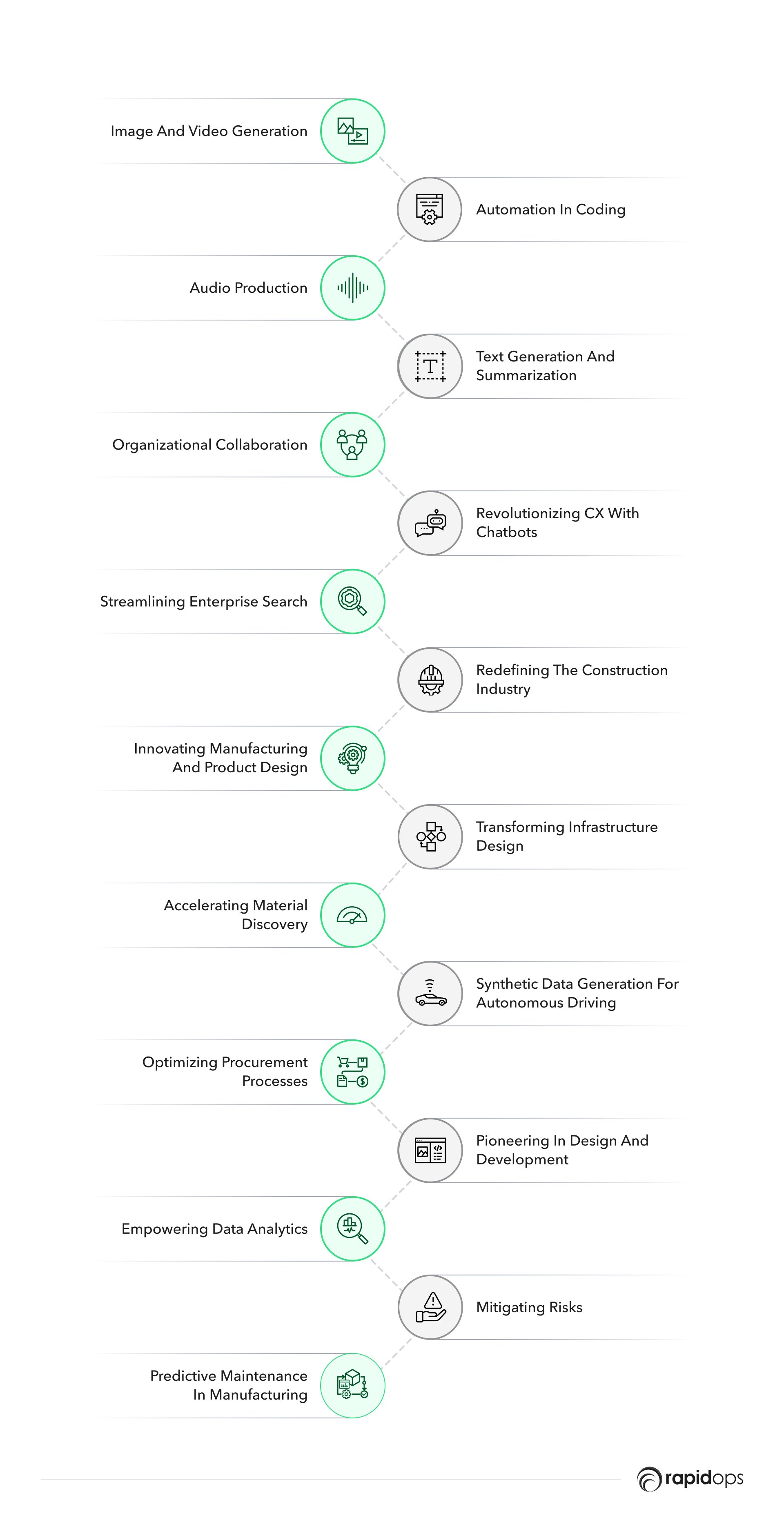
Let's delve into how generative AI is transforming different industries:
1. Revolutionizing creativity: Image and video generation
In media, advertising, and entertainment, generative AI excels in creating realistic images and videos from textual descriptions. This technology brings scripts to life, enhances visual storytelling, and simplifies the content creation process, offering a new toolset for artists and marketers.
2. Aiding software development: Automation in coding
The software development industry benefits immensely from generative AI by automating coding tasks. This advancement accelerates the development process, reduces human error, and enables developers to focus on more complex and creative aspects of programming.
3. The new frontier in audio production
In the music production and voice-over industry, generative AI's ability to produce realistic audio opens up possibilities for synthetic music creation and voice generation, offering cost-effective and time-efficient solutions.
4. Advancing content creation: Text generation and summarization
Generative AI is a game-changer for the content creation and customer service sectors. It efficiently generates human-like text and summarizes extensive information, enhancing content diversity and improving customer interaction through automated responses.
5. Enhancing organizational collaboration
Internal business operations benefit from generative AI through the automation of routine tasks. This streamlines workflow fosters collaboration and enhances productivity within organizations.
6. Revolutionizing customer interactions: Chatbots
Customer service experiences are elevated with more human-like, efficient chatbots. These AI-powered bots can handle inquiries with greater context understanding, improving user experiences.
7. Streamlining enterprise search
Generative AI enhances enterprise search capabilities, making information retrieval faster and more relevant, thereby improving decision-making processes.
8. Redefining the construction industry
In architecture and building design, generative AI accelerates product development, offering innovative design solutions and speeding up project timelines.
9. Innovating manufacturing and product design
The manufacturing sector utilizes generative AI to streamline critical aspects of product design, enhancing efficiency and innovation in product development.
10. Transforming infrastructure design
Generative AI plays a crucial role in infrastructure design, providing more efficient, sustainable, and cost-effective solutions for urban development.
11. Accelerating material discovery
In material science, generative AI expedites the discovery of new materials, leading to breakthroughs in various fields, including electronics and biotechnology.
12. Synthetic data generation for autonomous driving
The autonomous driving industry relies on generative AI for creating synthetic data, which is crucial for training and improving the safety and reliability of autonomous systems.
13. Optimizing procurement processes
Generative AI streamlines procurement processes, enabling organizations to optimize supply chains and reduce operational costs.
14. Pioneering in design and development
Across industries, generative AI aids in designing and developing a wide range of products, opening doors to innovative designs and solutions.
15. Empowering data analytics
Generative AI enhances data analytics, enabling businesses to derive deeper insights and make more informed decisions.
16. Mitigating risks
In various sectors, generative AI helps mitigate risk, identify potential issues, and proactively propose solutions.
17. Predictive maintenance in manufacturing
The manufacturing industry benefits from the predictive maintenance capabilities of generative AI, reducing downtime and increasing operational efficiency.
These applications demonstrate generative AI's versatile and transformative nature, marking a new era of efficiency and innovation across industries. As we continue to explore the potentials of generative AI, it's clear that its influence will only grow, reshaping the way we work and create.
Unleashing the power of generative AI in business: Opportunities and challenges
Generative AI, a rapidly evolving technological marvel, holds immense potential for revolutionizing business processes across industries. It's a journey of discovery, innovation, and transformation, yet intertwined with challenges that demand strategic approaches and responsible governance.
1. Understanding the essence of generative AI
Generative AI comprises algorithms that generate novel content (text, images, audio) from extensive training data. These algorithms, often built on foundation models, are trained on vast amounts of self-supervised, unlabeled data, making them powerful tools for innovation and creativity.
2. Wide-ranging applications in business
Generative AI's scope spans various domains, from content creation and personalized experiences to operational efficiency and fraud detection. Its ability to augment human creativity and drive innovation reshapes how businesses approach their marketing campaigns, customer service, and more.
3. Embracing generative AI: The adoption wave
The simplicity of adopting generative AI, even by organizations with limited AI expertise, is a significant driver of its widespread adoption. Through APIs and prompt engineering, businesses can harness the power of generative models with relatively little data, bridging the gap between technological capability and practical application.
4. Transformative impact on business processes
The impact of generative AI on business is profound and multifaceted. It automates content creation, optimizes supply chains, and enhances customer service. Its ability to provide detailed impact analyses revolutionizes decision-making processes, leading to more informed and strategic business operations.
5. Navigating challenges and responsible AI practices
However, the journey is not without challenges.
Issues like data safety, reliability, and ethical concerns (such as using copyrighted material in training datasets) necessitate a strong focus on responsible AI practices.
To lead in this new era, businesses must adopt clear, ethical strategies for generative AI implementation.
6. Bridging gaps: Confidence and skills
The 'confidence gap' due to concerns about generative AI models' safety, accuracy, and transparency is a significant barrier to widespread implementation.
Future-proofing AI strategies by embedding openness and flexibility is key to overcoming these challenges.
Additionally, the AI skills gap is a critical hurdle. An agile, cross-organizational approach to AI education and application aligns different stakeholders with long-term business strategies.
7. Enhancing business process management
Integrating generative AI into Business Process Management (BPM) software platforms that utilize cloud data can significantly enhance decision-making, resource allocation, and overall business performance.
This integration leads to more efficient, innovative, and competitive business operations.
8. Preparing for the AI-driven future
Business leaders must broadly consider the rollout of generative AI and its impact on their organizations.
This involves technological readiness and preparing their workforce for the changes and opportunities that generative AI brings.
Generative AI is not just a technological advancement; it's a paradigm shift in how businesses operate and innovate.
The journey involves understanding its potential, embracing its applications, navigating its challenges, and strategically integrating it into business processes.
Moving forward, we should focus on harnessing its power responsibly and innovatively, paving the way for a more efficient, creative, and data-driven business landscape.
The road ahead: Emerging trends and future predictions in generative AI
As we look toward the future, generative AI is poised to continue its rapid advancement and innovation trajectory. Understanding the emerging trends and predictions is essential for businesses planning to leverage this transformative technology.
1. Advancements in algorithms
Future developments in generative AI will likely see more sophisticated algorithms. This includes improvements in large language models (LLMs) and diffusion models, leading to more accurate and versatile AI systems.
Businesses should stay attuned to these advancements to harness the full potential of AI.
2. Ethical considerations and AI governance
As generative AI becomes more prevalent, ethical use and governance will gain prominence. Issues around data privacy, bias in AI, and the ethical creation of content will be at the forefront. Generative AI development companies must prepare to navigate these challenges responsibly.
3. New applications and industries
Generative AI will find new applications in industries not traditionally associated with AI. Sectors like legal, educational, and governmental services could see transformative applications of AI, from document generation to policy analysis.
4. Integration with other technologies
The future will likely witness generative AI integrating with other emerging technologies such as IoT, blockchain, and augmented reality, creating novel solutions and enhancing existing services.
For businesses, staying informed about these trends is crucial. It will prepare them for the evolving landscape of AI and open up opportunities for innovation and competitive advantage.
Getting started with generative AI: Tips for businesses
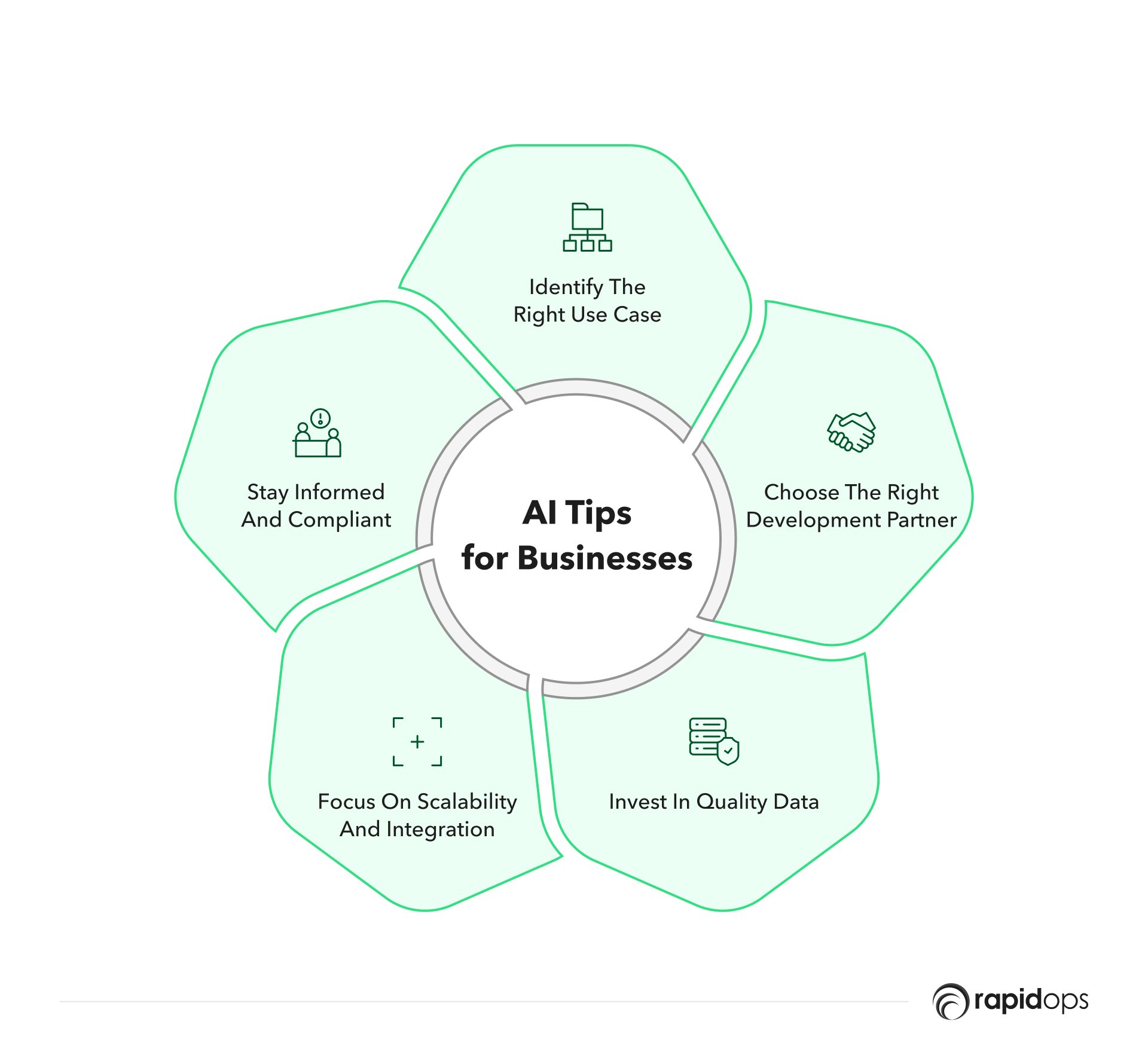
For businesses looking to integrate generative AI into their operations, it's crucial to approach this technology strategically. Here are some tips to help businesses embark on their generative AI journey.
1. Identify the right use case
Start by identifying areas within your business where generative AI can have the most impact.
Whether enhancing customer experience, automating processes, or driving innovation, the right use case will align with your business objectives and capabilities.
2. Choose the right development partner
Selecting a competent generative AI development company is critical. Look for partners with proven expertise in your industry and a track record of successful AI implementations.
Consider their approach to data privacy, AI ethics, and ongoing support.
3. Invest in quality data
The effectiveness of generative AI models heavily depends on the quality of training data. Ensure that you have access to high-quality, diverse, and relevant datasets. In cases involving sensitive data, understand the implications of data privacy and security.
4. Focus on scalability and integration
As your business grows, your AI solutions should be able to scale accordingly. Opt for adaptable, generative AI models that can easily integrate with your existing systems and workflows.
5. Stay informed and compliant
As generative AI rapidly evolves, keeping abreast of the latest developments, regulatory changes, and best practices is essential. This will help in making informed decisions and remaining compliant with industry standards.
By following these guidelines, businesses can effectively harness the power of generative AI, paving the way for innovation, efficiency, and a competitive edge in their respective industries.
Concluding thoughts: Embracing the AI revolution
As we have explored, generative AI is not just a technological advancement; it's a paradigm shift reshaping industries and redefining the boundaries of innovation and creativity.
The impact of generative AI on businesses and society is profound, and the Gen AI development companies leading this revolution are playing a crucial role in shaping our future.
1. Impact on industries and society
Generative AI is transforming industries by introducing new levels of efficiency, personalization, and creative potential.
From healthcare to finance and marketing to creative arts, its influence is widespread, driving significant improvements in processes and products.
2. Role of leading generative AI development companies
With their cutting-edge technologies and innovative applications, the top generative AI development companies are not just participants but drivers of this change.
Their work in advancing AI models and applications sets new standards for what technology can achieve.
As we embrace the AI revolution, it is vital for businesses to recognize the importance of these developments.
Staying informed, adapting to new technologies, and partnering with the right AI development companies will be key to thriving in this new era.
Generative AI is more than a trend; it's a transformative force reshaping our world, and the opportunities it presents are boundless.
Frequently Asked Questions (FAQs)
How to choose the right generative AI development company?
What industries can benefit most from generative AI?
What are the ethical considerations in generative AI?
How is generative AI transforming creative industries?
What does the future hold for generative AI?
What’s Inside
- Understanding generative artificial intelligence: The core of modern innovation
- Criteria for selection: How we identified the leaders
- The generative AI development companies of 2025
- The transformative power of generative AI across industries
- Unleashing the power of generative AI in business: Opportunities and challenges
- The road ahead: Emerging trends and future predictions in generative AI
- Getting started with generative AI: Tips for businesses
- Concluding thoughts: Embracing the AI revolution
- Frequently Asked Questions (FAQs)




